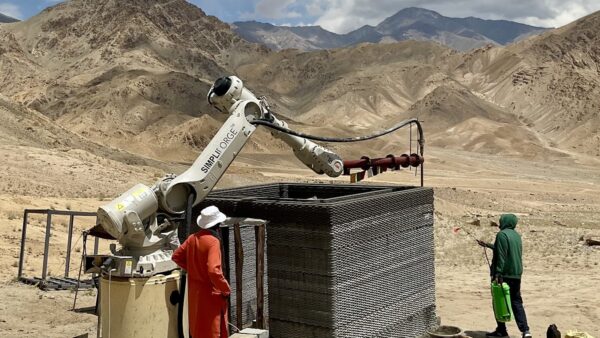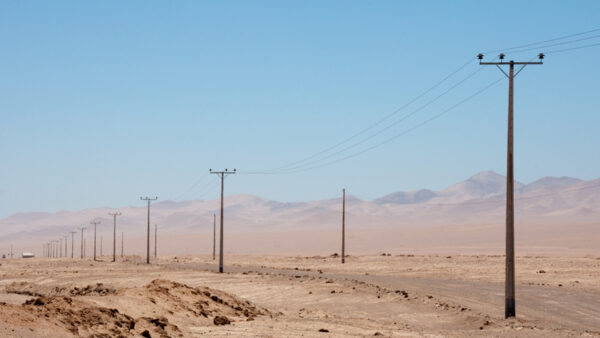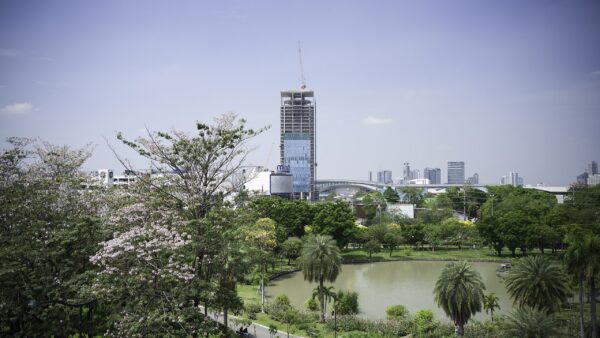Qatar was this week urged to allow all workers to leave the country without their employer’s permission after those building World Cup stadiums started doing so under a new law.
Human Rights Watch (HRW) said that while the change for construction workers was an “important step forward” it should be fully extended to others, including those in the domestic sector.
Workers want to work in the Gulf states, they want to support their families at home, but they also want decent work where they are treated fairly and with dignity and respect– Sharan Burrow, ITUC General Secretary
The changes, announced in October, allow workers to change jobs freely without a “no objection certificate” from their employer, and to leave Qatar without an exit visa.
But while it covers construction workers, HRW said the new law doesn’t include some government employees, those in the oil and gas sector, in agriculture and the domestic sector.
The hated kafala system of sponsored labour has been described as a form of modern slavery, trapping migrant workers when their wages are cut or stopped, leaving them unable to change jobs or go home when unscrupulous bosses withhold the necessary paperwork.
Campaigners said that under the new law domestic workers will still have to give 72 hours’ notice that they wish to leave the country and this could lead to reprisals against them for doing so.
“Qatar has taken an important step to eliminate a tool of control that employers sometimes used to exploit workers and keep them entrapped in abusive situations,” said Rothna Begum, a senior women’s rights researcher at HRW.
“However, the authorities should ensure that no worker should have to get permission from an employer to exercise their right to leave the country.”
The Kafala system affects 23 million migrant workers across the Gulf region.
The International Labour Organisation (ILO), the International Trade Union Confederation (ITUC) and the labour ministry have been negotiating since 2017 to end kafala Qatar, where it affects two million workers.
Qatar agreed to bring in reforms after the spotlight was shone on the tiny Gulf state when it won the rights to host the 2022 World Cup – and reports emerged of the poor conditions of migrant workers being used to build the eight stadiums.
The new laws, which came into effect this month, included:
- Exit visas for all workers including domestic staff eliminated;
- A system of contracts that are transparent and labour courts to enforce them;
- The end to permission to leave a job, with criteria equivalent to any modern industrial relations system;
- A government fund to ensure workers are not disadvantaged by exploitative employers, while the state pursues recovery of entitlements.
Negotiations are also underway for a new minimum wage which is expected to be announced in the coming months.
ITUC General Secretary Sharan Burrow said: “We recognise that an evidence-based minimum wage, the first of its kind in the Middle East, will be a major improvement for workers, and will guarantee a minimum level of protection.”Â
Following Qatar’s announcement, Saudi Arabia remains the only country to require exit permits for all its migrant workers.
HRW also said that in other Middle East countries, a migrant worker can still be blocked from leaving the country if a sponsor files a complaint with the immigration authorities or if the employer has not cancelled the person’s residency visa.
Ms Burrow called for other countries in the Gulf to follow Qatar’s example and do away with similar bad practices.
“Workers want to work in the Gulf states, they want to support their families at home, but they also want decent work where they are treated fairly and with dignity and respect,” she said.Â
International human rights law provides that “everyone has the right to leave any country, including his own, and to return to his country”.
- Anthony Harwood is a former foreign editor of the Daily Mail
Image: Migrant workers in West Bay, Doha, Qatar (Alex Sergeev/www.asergeev.com/CC-BY-SA-3.0)
Further reading:










